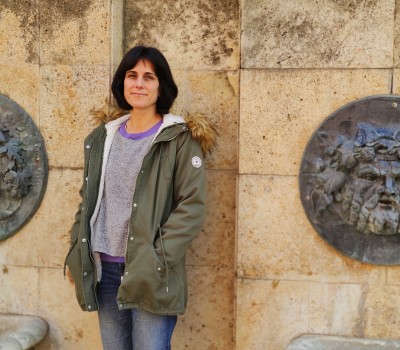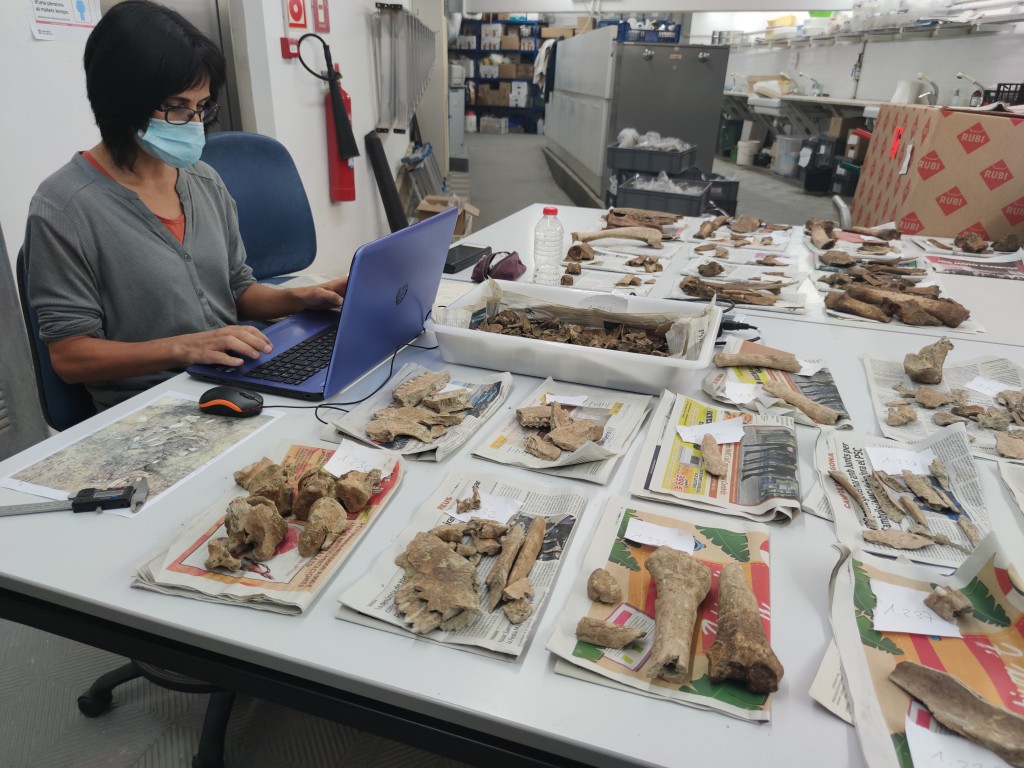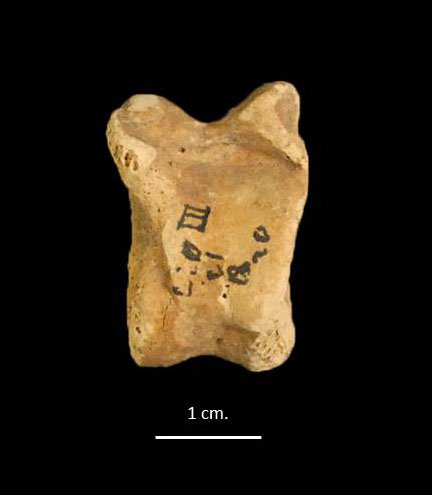
This March 2021, Dr Lídia Colominas began a new stage of her research career at ICAC, through a research contract from the Ramón y Cajal Spanish government call.
Lídia Colominas is an archaeologist specialized in the study of Romanization in the Western Mediterranean. Her research focuses on the study of interactions between animals and societies from the first millennium BC and the change of era, through archaeozoology.
After a postdoc stage at McDonald Institute for Archaeological Research of the University of Cambridge (2012-2014), she joined the ICAC with a Juan de la Cierva research contract (2015), with which she carried out a research project on changes in livestock practices in Iberian and Roman times in the Plana de l’Empordà and in the Eastern Pyrenees.
In 2017 Dr Colominas gained an ICAC’s postdoctoral research contract and led a multidisciplinary project on transhumance in Ancient times, applying paleogenetic and morphometric analyzes.
These two projects have provided novel and highly relevant data on livestock practices in high mountain areas during Ancient times, proposing the appearance of flat-high mounains animal mobility already existing in Roman times.
Have a look at some of these results in the following publications:
- “What happened in the highlands? Characterising Pyrenean livestock practices during the transition from the Iron Age to the Roman period”, Archaeological and Anthropological Sciences, 12, p. 69-80.
- “Behind the steps of ancient livestock mobility in Iberia: new insights from a Geometric Morphometric approach”, Archaeological and Anthropological Sciences, 11 (9), p. 4971-4982.

In 2020, Dr Colominas won a Ramón y Cajal contract (Programa nacional de contratación e incorporación de RH, del Ministerio de Ciencia e Innovación, Spanish Science and Innovation Ministry) and bringed it to the ICAC. This new research stage opens the way to consolidating archaeozoology as an essential discipline to study Ancient societies in the ICAC. The new contract will allow Dr Colominas to create her own research team and consolidate her research career.
Animals had a very important role in Ancient societies (as they also have now), both in the economic sphere (they were a source of food and essential products such as skin, wool or dung), as well as in the social and ideological sphere (they were pets and were also used in rituals, ceremonies, etc.).

In this sense, Dr Colominas‘ research addresses a double perspective: research on identity, status and social inequalities of Ancient societies through the study of food and ritual practices; and the investigation of the economy through the study of the cattle ranch and the animal trade.
From a methodological point of view, Dr Colominas has integrated different novel analytical techniques into classical archaeozoological methodology. Her work has applied paleogenetic analysis to provide information on issues such as animal migration and trade, and has also applied Geometric Morphometry to provide data on the mobility of animals and their management and breeding systems.
In the ICAC, Dr Colominas’ research joins the Landscape Archaeology research team (GIAP), where along with Dr Alexandra Livarda they are developing a reserach line on bioarchaeology.





